When Can We Call Something Natural?
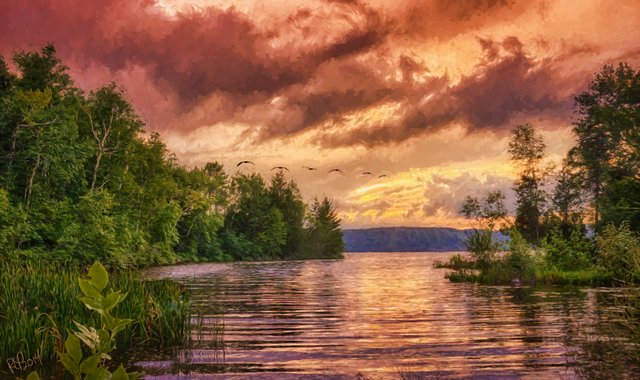
Where's the boundary between natural and artificial things?
Have you ever wondered what we should consider natural in the first place. Although this topic is quite broad, its subjectivity makes it a feasible topic of exploration.
A good way to start is to check our society's consensus on nature. So, let's do what curious people do and ask google.
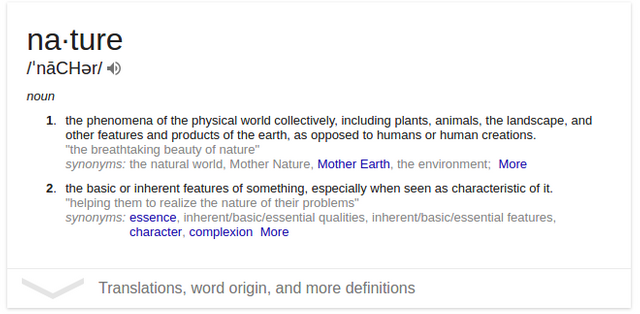
Here's a list of definitions that most of us would agree with. We can already see that nature has a variety of meanings. The type of nature we're specifically interested in is a noun.
This coincides with our first definition in that list:
"The phenomena of the physical world collectively, including plants, animals, the landscape, and other features and products of the earth, as opposed to humans or human creations."
I think it's safe to assume that this is a generally accepted definition of nature.
There are a couple of interesting aspects about this definition. Notice the clear distinction between human creations and nature. In a sense, this emphasizes the interdependence of these two terms. Without man made things the term nature would not have the same meaning and vice versa.
This distinction raises an interesting point. If people come from nature, why does our involvement in something strip it from its natural status? Inconsistencies like these are what made me become interested in this topic. To get a clearer sense of what I mean, take a look at these pictures:
If you think that these pictures' main focus can be considered natural, comment below so we can start a discussion!
I may throw in a line or two to point out some interesting aspects of the pictures.
Let's start with something simple. Here's an image of a wolf.
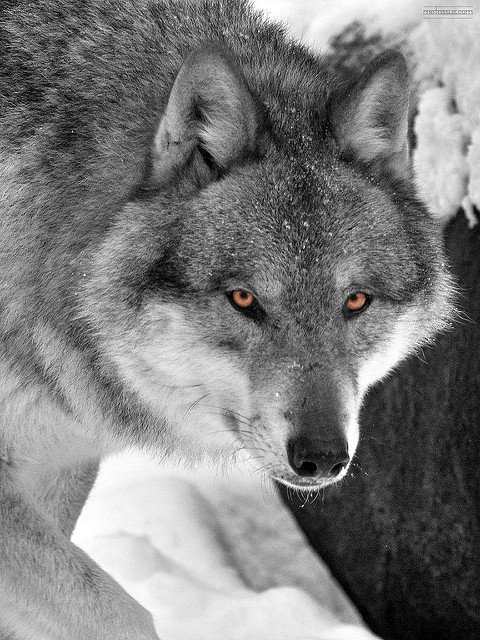
It wouldn't surprise me if the majority of you agreed that a wolf is natural. A wolf is a dangerous predator, which is why most people wouldn't want to get involved with one.
How about a dog?

Does the fact that it is domesticated strip it from its natural status?
What about this landscape?

What if someone decides to use some scissors?
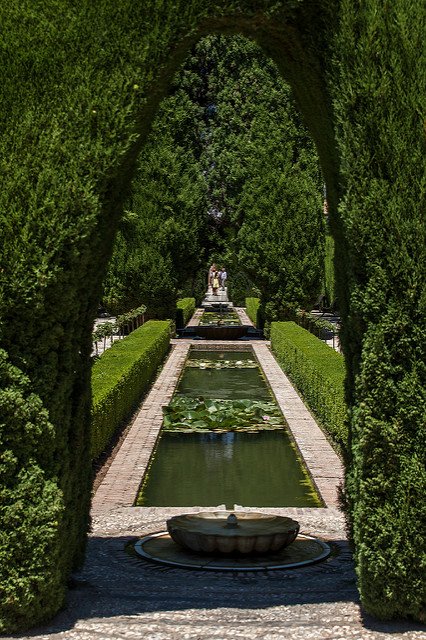
How about quartz? It's the second most abundant mineral on our earth's surface and mainly consists of silicon.
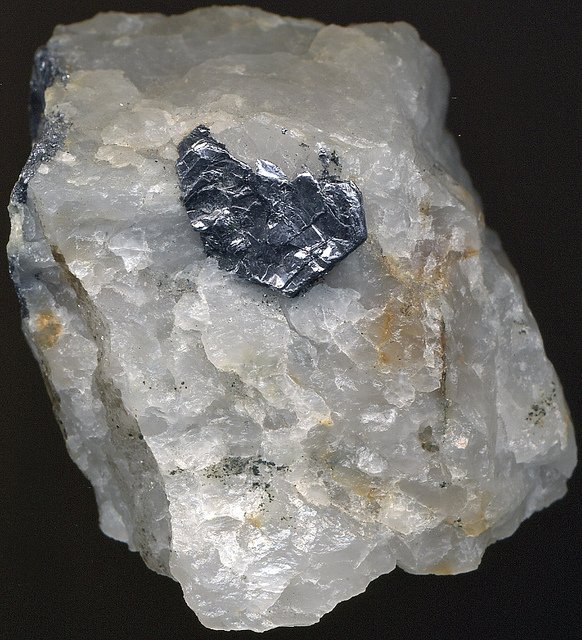
It's unlikely that many of you will have the same opinion about the silicon chip. I find it interesting how the same material's natural status seemingly depends on the form it is in.

As I was picking out these pictures, it was easy for me to place them in either category. For example, I think quartz is natural, but I don't think that a silicon chip is. Does this imply fundamental differences between natural and artificial things, or is this a human construct itself?
Bernot Mandelbrot was a french mathematician in the 20th century with incredible geometrical intuition. He stumbled across formulas which created self repeating patterns. Fractals have the underlying property of a self similar pattern. This means that the basic shapes of these objects repeat themselves in a recursive progression.
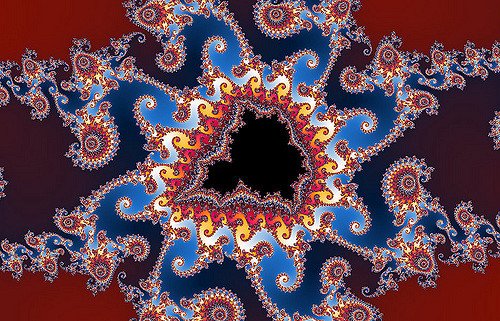
Self similarity is something extremely reminiscent of nature. It's a feature that can be seen in trees, leafs, snowflakes and even human veins. The fact that such an underlying property of nature can be imitated mathematically may be reason to believe that man made things and nature are equivalent.
In 1967 Roderick Frazier Nash wrote a book about the changing attitude society has towards wilderness in the United States. In his prologue he concludes that:
"A universally acceptable definition of wilderness is elusive".
I think this statement applies to nature too, as they are lexically and physically strongly related.
Therefore, we now know that natural and synthetic things are distinguished by human involvement. We also know that several intuitively natural and artificial things came from the same source. In addition, we also learn that human constructs can mimic fundamental characteristics of nature, like fractals.
As an attempt to bring all of this information together, I would offer Nash's insight as the underlying message behind what we've considered. The boundary between natural and artificial things is something which we intuitively seem to understand clearly. However, upon further inspection this boundary simply becomes too elusive to define.
steemit: martin-stuessy
Portfolio
I love how you started with the common definition of nature. Some investigation in to the etymology of "artificial" could be valuable as well. By definition, anything manipulated by a human hand is artificial, but does this align with our intuitions about natural / not natural?
btw - I selected your piece for today's #philosophy-review. keep up the great posts! https://steemit.com/philosophy/@aaanderson/the-philosophy-review-nov-29-2016
Thanks for the feedback and for sharing my work! Glad you got something out of my writing :)
You touched on a point that I have had trouble with myself. Some of our most natural wildernesses are only kept that way by the action of man, to keep man out. Does that reduce the naturalness of it? Would it be more natural to let the evolved animal that is man trample it as the herds stamp the African plains to dust?
Sorry for taking so long to respond.
Although I don't say so in the article, my take-away is that it's futile to distinguish between nature and synthesis. So yes, I would consider the evolved animal trampling the African plains to dust a natural phenomenon. Not all natural things are good from a human perspective though!
Thanks for the response, but you may have misread my comment.
This post has been linked to from another place on Steem.
Learn more about and upvote to support linkback bot v0.5. Flag this comment if you don't want the bot to continue posting linkbacks for your posts.
Built by @ontofractal